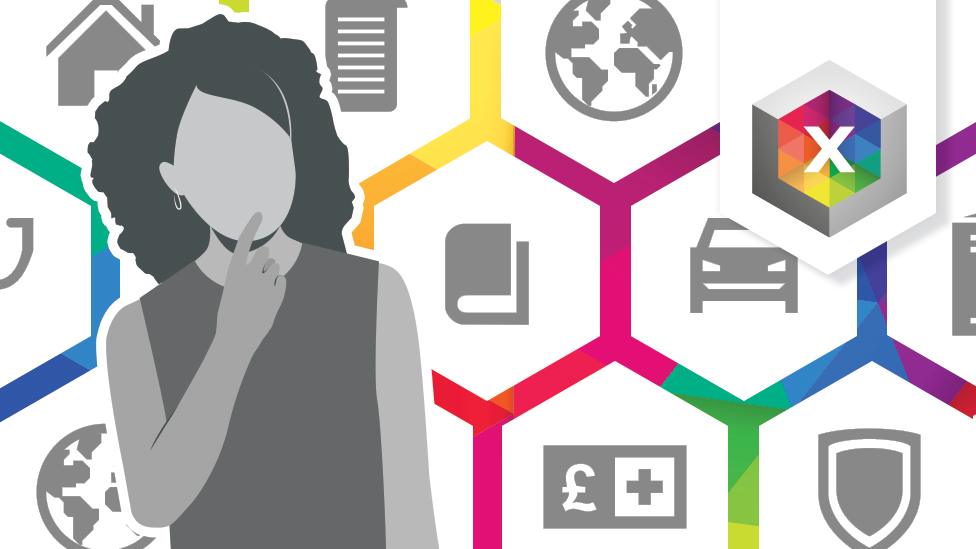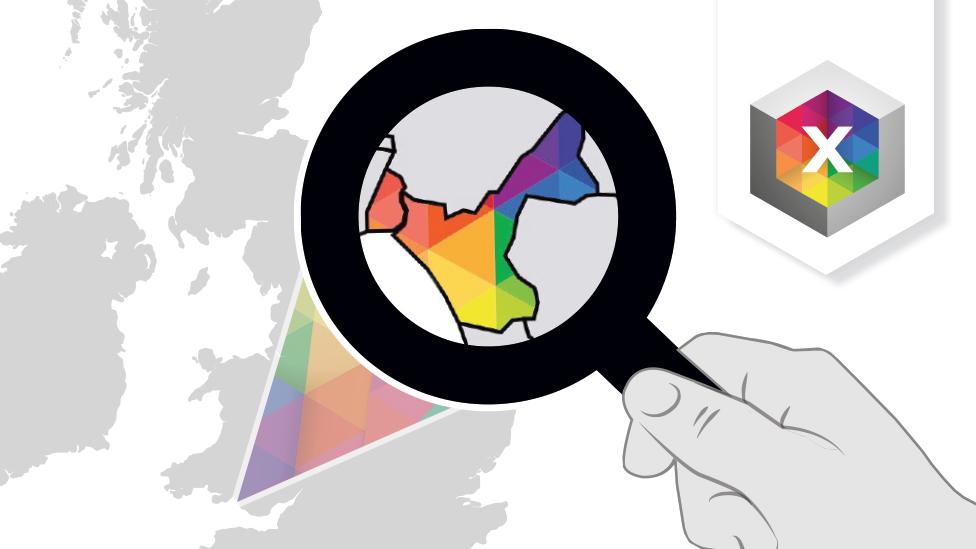General election 2019: When wanting to vote could put you at risk
- Published

When you register to vote, your name and address are placed on the electoral roll - a public document that is available to all. For some, that can lead to a potentially dangerous dilemma.
"If I were being really cynical about it, one could argue that it's almost sexual discrimination by the back door," says a women we'll call Kate, as we talk about her struggle to access the vote after escaping an abusive relationship, with the two small boys.
Kate was always politically engaged. She had been registered to vote by post at her previous address - but it was too dangerous for her to return there to pick up her ballot paper and she couldn't make her new address public for fear her abusive partner could catch up with her.
But she still wanted to vote. So she began researching her options. Initially, she found nothing online to help her. Eventually, her mother suggested asking her local council.
"The first person she spoke to said she had no idea what my mother was talking about but when pressed did find a senior officer," Kate says.
"This officer knew that I could register anonymously, external and checked my current address and advised there was a special form that would be posted to me."
It was the first time Kate had heard of the system. It seems many others don't know it exists.
Data from the Office for National Statistics, external shows 2,268 people in England and Wales registered anonymously in 2016 - rising to 2,525 in 2017, the year of the last general election.
But Women's Aid says more than 13,000 women in England were taken into emergency or refuge accommodation in 2016-17.
"That is obviously a very small fraction of survivors who had successfully used the anonymous registration system," Lucy Hadley, the charity's campaigns and public affairs manager, says.

CONFUSED? Our simple election guide, external
MANIFESTO GUIDE: Who should I vote for?, external
POSTCODE SEARCH: Find your local candidates, external

And even after having discovered the option to register anonymously, Kate still had to jump through "many hoops". People can apply for anonymous registration only if they have certain documents - such as a court injunction or a letter asserting they would be at risk if their address was publicly available.
Previously, these could be issued only by senior figures in crime prevention and social services. But following pressure from a campaign by women's organisations, the list of people who can provide such a letter was last year expanded to include managers at refuges, police inspectors, and registered nurses or GPs.
"My particular court order was not included," Kate says. "It was like another barrier going up. In a situation such as mine - and I'm certainly not unique - there is so much going what with different social services and the courts that having to fight to vote is probably not up there on most people's top 10 to do list."
But Kate was told she could ask her GP. "I seem to be always up there with tiny children, so I asked there," she says. She worried there would be a fee but wasn't charged. "I got the form to the town hall in time so I am now in the system," she says.
While she welcomes the recent changes that allow more people to provide evidence, Ms Hadley says more needs to be done to help women like Kate.
Most people have to register to vote once only. They will have to re-register after moving house and local councils are likely to check the electoral roll is still correct every year.
However, under the current system, anonymous registration lasts a year only. Those registered have to re-apply - and gather all the evidence again - every time they want to vote in an election.
According to Ms Hadley, the government says the system is designed to protect those whose safety is "currently at risk". But Women's Aid is calling for the 12-month limit to be scrapped.
"We are concerned that many survivors will continue to face barriers to voting because they cannot 'evidence' that their current safety is at risk," Ms Hadley says.
"Domestic abuse does not end when a relationship ends.
"We know professionals' understanding of post-separation abuse, and the continued harm women suffer after leaving, can be poor - therefore it may be challenging for survivors to keep accessing an 'attestation' from a professional for anonymous registration after the relationship has ended."
What do the parties offer?


What are the parties promising you?
Here's a concise guide to where the parties stand on key issues like Brexit, education and the NHS.
- Published11 December 2019

- Published6 November 2019

- Published18 November 2019
